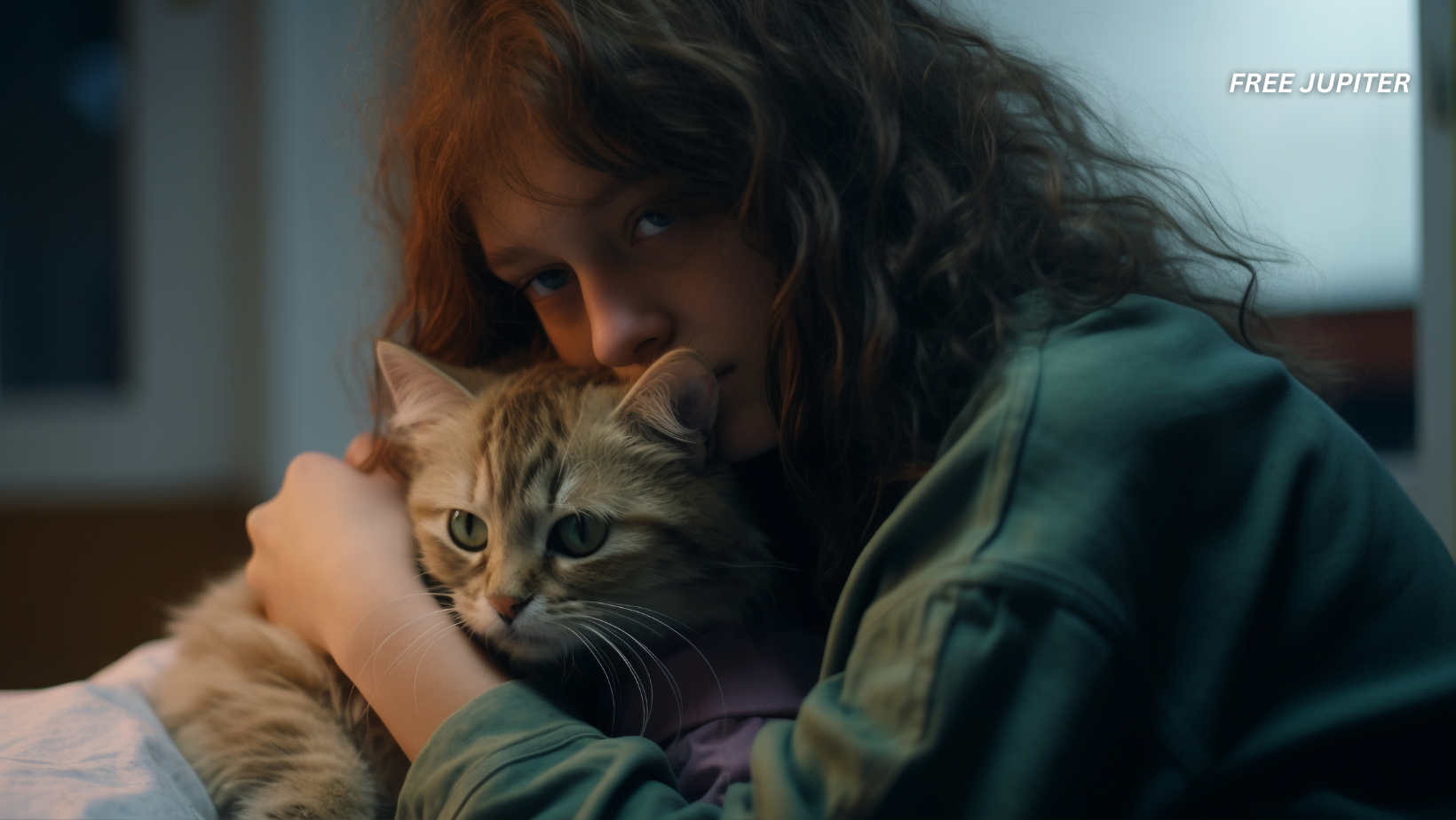Friendly Note: FreeJupiter.com shares general info for curious minds 🌟 Please fact-check all claims—and always check health matters with a professional 💙
You’ve probably heard it at some point—maybe at a dinner party, in a casual chat, or on a dating profile: “I’m not a cat person.” The statement often arrives unsolicited, with the intensity of someone confessing a deep personal truth or allergy. There’s usually a dramatic pause, a wrinkle of the nose, and a tone that implies cats have committed some grave offense. Yet no one brought out a cat, and no one asked. Still, they feel compelled to make it known.
What’s interesting isn’t just the aversion to cats—people are allowed to have preferences. What stands out is the performance of the rejection. You don’t see this kind of show from people who prefer dogs, or from those who simply don’t care for pets. But for some reason, not liking cats becomes a badge of identity, as if saying “I’m not a cat person” tells you something deep about who they are.
And it does—but not in the way they might think.
1. They Want Love On Demand
People who dismiss cats often say, “Dogs are just more affectionate.” What they usually mean is: “Dogs give affection when I want it.” That kind of predictable love—ready and waiting like tap water—is deeply comforting to them.
Cats, on the other hand, are more unpredictable. One minute they’re ignoring you; the next, they’re demanding cuddles when you’re in the middle of something important. Their timing is their own. This frustrates people who crave emotional responsiveness on their schedule. They want affection they can trigger like pushing a button. But with cats, love is a gift—not a guarantee. And that bothers those who don’t like waiting for it.
Read more: If You Hate Wearing Clothes at Home, You Might Have This Rare Inner Superpower
2. They Struggle With Not Being In Control
Some people proudly declare, “You can train a dog. Dogs obey. Dogs know who’s boss.” Translation: “I need to be the one in charge.”
Cats don’t play by those rules. You can’t really train a cat. They choose whether or not they’ll sit on your lap, sleep in your bed, or even acknowledge you. Their affection isn’t something you earn—it’s something they offer.
For people who thrive on being in control—of outcomes, emotions, relationships—cats can be unsettling. Cats flip the power dynamic. Suddenly, you’re not the one choosing the pet—it’s the pet choosing you. And some people just can’t handle that role reversal.
3. They Need Constant Validation
“At least dogs are happy to see you.” You’ll hear that a lot. It’s less about the dog and more about what the dog provides: a steady stream of approval. Tail wags, excited barks, the whole “you’re my favorite human” performance.
Cats? Not so much. They might acknowledge your presence. They might walk away mid-pet. They might blink slowly from across the room—if you’re lucky.
To someone who equates love with enthusiastic attention, this can feel like rejection. But a cat isn’t rejecting you—it’s just existing independently. Still, for those who rely on external praise to feel seen or valued, that kind of emotional neutrality can sting.
4. They Confuse Independence With Coldness
Many people describe cats as “aloof” or “cold.” What they really mean is: “This animal isn’t constantly paying attention to me.”
Cats are fiercely independent. They don’t need you to entertain them. They nap alone, play alone, and enjoy their solitude. To some, this looks like indifference or even rudeness. But it’s not a flaw—it’s just a different kind of relationship.
Those who need constant engagement—people who get upset when someone doesn’t immediately text back or who assume space means rejection—might interpret feline independence as a personal slight. But really, it’s a different language of love—one that doesn’t always orbit around humans.
5. They Crave Clear Relationship Roles
There’s a popular saying: “Dogs have owners. Cats have staff.” It’s funny—unless you’re someone who needs to be at the top of every relationship hierarchy. Then it’s deeply uncomfortable.
People who need to know they’re the authority, the leader, the one in charge, often struggle with cats. You can’t be the “alpha” in a cat’s world. You’re not the boss. You’re a roommate who pays the rent and opens the cans.
That kind of equality can feel like a threat to those who define relationships through rank and control. To them, a cat’s refusal to obey doesn’t read as independence—it reads as disrespect.
Read more: If These 9 Things Were Said to You Growing Up, Your Parents Likely Weren’t Ready To Have Kids
6. They Need Love to Be Earned Through Effort
Some people believe that affection must be earned through specific actions: feed the pet, train the pet, get the pet’s love. Simple math, right?
Cats don’t do math.
They’ll ignore you when you bring them treats and curl up with a stranger who barely acknowledged them. Their affection is mysterious. There’s no guaranteed cause-and-effect. And for someone who needs results from effort, this randomness can be maddening.
7. They Take Neutral Behavior Personally
If a cat walks past them without stopping, it’s not just a cat doing its own thing—it becomes “She’s ignoring me.” If the cat lies down facing away, it’s not comfort—it’s “He hates me.”
Some people project rejection onto every neutral action. They can’t fathom that not everything is about them. To them, everything must mean something: good or bad, warm or cold, accepting or rejecting.
Cats don’t operate on that binary. But people who are sensitive to perceived slights might see every indifferent blink as a personal jab.
8. They Expect Gratitude from Animals
Many “not a cat person” types seem to expect their pets to express gratitude—clearly and often. Dogs meet this expectation with wagging tails and sloppy kisses. Cats might give you a headbutt—or knock your coffee off the table while staring into your soul.
This lack of “thank you” behavior infuriates people who keep mental scorecards in relationships. If they’re going to feed, clean up after, and shelter an animal, they expect affection in return. Cats disrupt that unspoken contract by simply not playing along.
9. They Fear Being Seen Without a Script
Perhaps the most uncomfortable truth? Cats see through the performance.
You can’t impress a cat with your résumé, your jokes, or your charm. They won’t care how popular you are or how well you pretend to be chill. Cats respond to something deeper—something you can’t fake or control.
This terrifies people who are used to managing how others see them. They know how to be liked, how to win attention, how to appear perfect. But cats aren’t buying it. They connect when they want to—and to whom they want to—based on criteria we don’t always understand.
That kind of unpredictable judgment can rattle even the most confident human.
So, What Does “Not a Cat Person” Really Mean?
Often, it’s not about cats at all.
It’s about control. About needing affection to follow rules. About being uncomfortable with relationships that don’t revolve around you. It’s about wanting love you can schedule, loyalty you can earn, and validation you can count on.
Cats don’t give you that. They exist on their own terms. They love unpredictably. They don’t follow human social scripts. And for some, that’s simply too much.
So when someone says, “I’m not a cat person,” they might be telling you more than just a pet preference. They may be revealing their discomfort with unpredictability, independence, or love that can’t be earned through effort. They’re not necessarily wrong or bad—they just prefer relationships that make more sense to them.
And the cats?
They’re completely fine with that.










